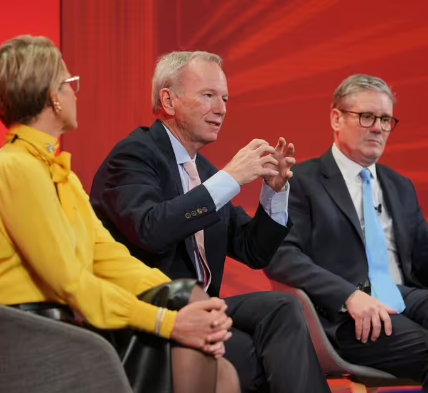Various public sector pay increases were announced today after the Chancellor accepted recommendations put forward by public sector pay review bodies of wage rises above inflation (currently at 3.5%) in the 2025/26 financial year.

The Chancellor Rachel Reeves (Image: Getty)
Rachel Reeves is awarding inflation-busting pay rises across the public sector, just hours after it was revealed net borrowing last month was a billion higher year-on-year for the same sector. Various pay increases were announced today after the Chancellor accepted recommendations put forward by pay review bodies of wage rises above inflation (currently at 3.5%) in the 2025/26 financial year.
Ministers have greenlit a 4% increase for most teachers and dentists, with resident doctors handed an average rise of 5.4% (a 4% increase plus a consolidated payment of £750). Teachers will get a 4%-rise award, with a 3.2% increase for school staff including teaching assistants, caterers, admin staff and caretakers.

Meanwhile, NHS staff on Agenda for Change (AfC), which includes nurses, health visitors, midwives, ambulance staff, porters and cleaners, will see a 3.6%-uplift, the government announced.
According to The Telegraph, these hikes in pay will cost around £6.9billion.
Senior military (those of at least two-star rank) will also see their base pay grow by 3.75%, and other members of the armed forces will get a 4.5% boost. There are also rises for top civil servants and prison officers (3.25% and 4% respectively).
The government previously budgeted for 2.8% rises, and ministers have warned that increases higher than that will require funding from current budgets, as per BBC News.
The pay hikes follow Labour’s decision last summer to accept uplifts of between 4.75% and 6% for last year to avert further public sector strikes which had plagued the former Conservative government.
It comes as Reeves attempts to balance day-to-day spending with revenues by 2029-30 while improving public services and targeting accelerated economic growth, as part of her fiscal rules.
This morning, the Office for National Statistics (ONS) revealed public sector net borrowing had risen to £20.2 billion in April, £1billion more than the same month last year. It marked the fourth-highest recorded figure for April.
The figure suggests the Chancellor had to borrow more money than expected over last month, exceeding the £17.6billion prediction offered by analysts.
Responding to the borrowing figures, Shadow Chancellor Mel Stride said they “expose the true cost of Labour’s reckless economic policies”.
“Instead of reining in spending, the Labour Chancellor has piled billions onto the national debt by fiddling the fiscal rules and maxing out the national credit card.
“This follows on from borrowing last financial year coming out billions of pounds higher than the plans Labour inherited, and means wasting billions more pounds of taxpayers’ money on debt interest,” he claimed.
Chief Secretary to the Treasury, Darren Jones, said: “After years of economic instability crippling the public purse, we have taken the decisions to stabilise our public finances, which has helped deliver four interest rate cuts since August, cutting the cost of borrowing for businesses and working people.
“We’re fixing the NHS, with three million more appointments to bring waiting lists down, rebuilding Britain with our landmark planning reforms and strengthening our borders, delivering on the priorities of the country through our Plan for Change.”























Most Popular Comments
1st Most liked comment • 21 hours ago27
“Just add it to the £9billion Chagos island debacle, the £9 billion civil service wage increases, the £8 billion a year illeagle benefit seekers …”
2nd Most liked comment • 21 hours ago24
“So, where is she getting all the money from ?”
3rd Most liked comment • 21 hours ago22
“She’s lost all credibility”